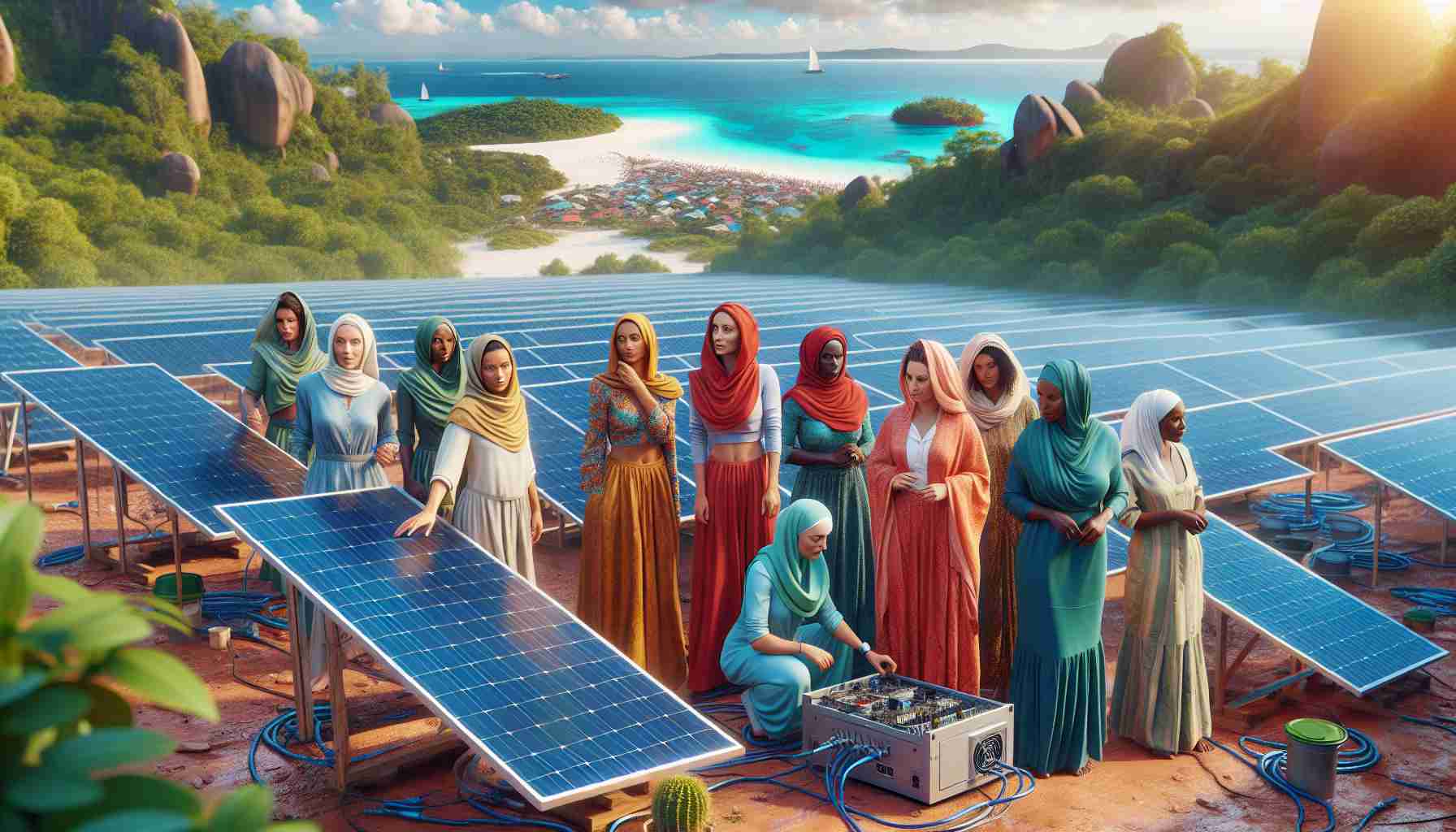In a vibrant village in Zanzibar, a group of women is transforming lives through solar energy. The initiative is not just about providing electricity; it’s about empowerment and changing perceptions.
Sharifa Hussein, alongside her fellow trainees, is proving that women can break traditional barriers. They are passionate members of the Solar Mamas program, founded by Barefoot College Zanzibar. With only half the population of Zanzibar enjoying electricity, many rely on expensive, hazardous fuels. The Solar Mamas are changing this dynamic, installing solar kits that offer affordable and sustainable energy solutions.
The program targets women over 35, particularly those with minimal education, equipping them with vital skills in solar technology. Following a rigorous three-month training course, graduates receive solar kits to install in their communities, charging a small monthly fee that makes renewable energy accessible.
Brenda Geofrey, a key figure at Barefoot College, emphasizes the need to shift mindsets, helping women realize they can pursue professional aspirations beyond domestic roles. This initiative has already trained 65 women, resulting in the electrification of 1,858 homes across 29 villages.
As these women gain expertise and income, they not only illuminate their communities but also inspire hope for a brighter, more equitable future. The Solar Mamas stand as powerful symbols of change, leading the charge toward renewable energy and socioeconomic progress in Zanzibar.
Empowering Women Through Solar Energy in Zanzibar: A Bright Future Ahead
A Transformative Initiative
In the picturesque landscape of Zanzibar, a remarkable initiative is underway, harnessing the power of the sun to change lives and empower women. The Solar Mamas program, initiated by Barefoot College Zanzibar, is not merely about providing electricity; it’s about fostering independence and reshaping societal roles among women.
Solar Mamas Program: An Overview
The Solar Mamas program targets women over 35, particularly those with limited educational backgrounds. This impactful initiative equips them with essential skills in solar technology through an intensive three-month training course. Upon graduation, these women receive solar kits to implement within their communities, enabling them to offer affordable and sustainable energy solutions. As they charge a nominal monthly fee for installations, they make renewable energy more accessible while generating income for themselves.
Key Features of the Solar Mamas Initiative
– Empowerment Focus: The program specifically uplifts women from traditional roles, enabling them to pursue careers in technology and sustainability.
– Sustainable Solutions: By replacing hazardous fuels with solar energy, the initiative promotes health and safety within communities.
– Community Impact: Trained graduates have successfully electrified 1,858 homes across 29 villages, showcasing significant progress.
Pros and Cons of Solar Mamas
Pros:
– Economic Empowerment: Women gain financial independence through skill acquisition and solar installations.
– Health Benefits: Reduced reliance on dangerous fuels improves community health.
– Environmental Impact: Solar energy contributes to sustainability efforts and reduces carbon footprints.
Cons:
– Initial Training Costs: While the program is beneficial, initial costs for training and resources can be a barrier.
– Skill Gaps: Some women may struggle initially to adapt to the technical aspects of solar technology.
Insights on Gender and Renewable Energy
Brenda Geofrey, a prominent advocate at Barefoot College, highlights the importance of shifting perceptions about women’s roles in society. “We need to cultivate a mindset that allows women to explore professional aspirations beyond domestic responsibilities,” she asserts. This initiative not only provides energy solutions but also inspires women to envision and pursue diverse career paths.
Market Analysis and Future Trends
As energy consumption continues to rise globally, initiatives like the Solar Mamas could play an essential role in integrating renewable energy solutions into underserved communities. The focus on women’s empowerment within this sector reflects broader trends aiming for gender equality in renewable energy professions.
Call to Action: Join the Movement
The Solar Mamas program is a beacon of hope and change. Individuals and organizations interested in supporting similar initiatives can explore partnerships with local NGOs or contribute to broader educational programs aimed at empowering women in renewable energy.
For more information on sustainable energy initiatives and the empowerment of women through technology, visit Barefoot College.
In conclusion, the Solar Mamas in Zanzibar represent a dynamic shift towards a more equitable society, where women are not only consumers of energy but also pivotal contributors to a sustainable future. By continuing to invest in such programs, we can encourage similar movements around the world, promoting both energy independence and gender equality.
